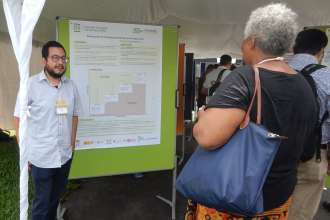Abstract. We test the effectiveness of a social comparison nudge (SCN) to enhance lockdown compliance during the COVID-19 pandemic using a French representative sample ( N = 1,154). Respondents were randomly assigned to a favorable/unfavorable informational feedback (daily road traffic mobility patterns, in Normandy – a region of France) on peer lockdown compliance. Our dependent variable was the intention to comply with a possible future lockdown. We controlled for risk, time, and social preferences and tested the effectiveness of the nudge.




